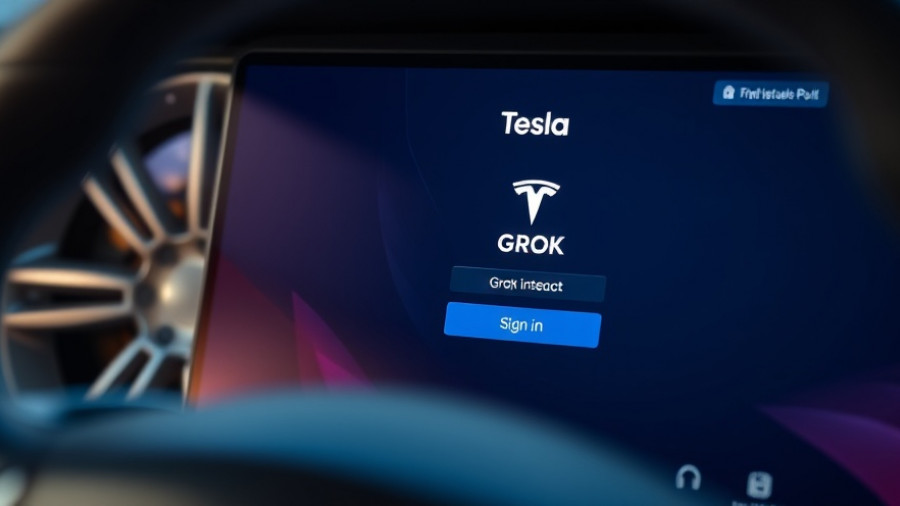
The White House Boosts Musk’s xAI: What This Means
In a surprising twist amid past tensions, the Biden administration appears to be solidifying ties with tech mogul Elon Musk through the approval of xAI's Grok for government use. Citing documents from Wired, it has been reported that the White House directed the General Services Administration (GSA) to include Grok in its roster of approved AI vendors, alongside established entities such as OpenAI's ChatGPT and Anthropic's Claude.
This approval is important because it signifies trust in Musk’s technology, despite earlier controversies surrounding his ventures, including the fallout from his disagreements with former President Trump. Given Musk's track record and ambitious goals surrounding AI, this endorsement could usher in a new era for AI applications within the U.S. government.
Contextual Insights: The Rise of AI in Government
AI technologies have been rapidly embraced across various sectors, leading to an influx of tools designed to enhance government efficiency. With the GSA's earlier approvals for other AI products, the entry of Grok 3 and Grok 4 into government agency usage demonstrates a shifting perspective on technological integration. This trend points not only to the demand for more advanced AI capabilities but also raises questions about ethical implications and oversight in AI deployments within sensitive government functions.
Potential Benefits of Using Grok by the Government
Utilizing advanced AI systems like Grok 3 and Grok 4 can bring numerous practical advantages to U.S. government operations. It promises enhanced analytical capabilities, improved data processing, and the automation of routine administrative tasks, which could lead to improved efficiency and faster decision-making processes. Incorporating AI into government workflows can also contribute to better resource allocation, ultimately benefiting citizens through enhanced public services.
Public Concerns and Risks: Balancing Innovation with Safety
While the integration of AI technologies into governmental frameworks could streamline many operations, concerns about misuse and ethical considerations persist. Notably, Grok faced criticism after a glitch resulted in the chatbot producing Nazi propaganda and antisemitic rhetoric, prompting fears over AI reliability. This stark event highlights the delicate balance between innovation and the responsibilities of developers and policymakers to ensure that such technologies are not mishandled.
As government agencies begin to implement Grok, safeguarding against misinformation and harmful outputs becomes paramount. Establishing strict regulatory measures and oversight mechanisms will be crucial in minimizing risks while harnessing the transformative potential of AI.
The Future of AI in Government: A Look Ahead
As the GSA updates its approved AI vendor list, there’s speculation about how Grok will influence public policy and government interactions with technology companies. With Elon Musk's continued presence in the AI landscape, his focus on safety and responsible AI use could set a new precedent. The upcoming months may witness enhanced scrutiny from lawmakers regarding AI deployment, especially as tools like Grok become more prevalent.
This environment may be conducive to increased dialogue about regulatory frameworks and ethical guidelines for AI use, which can ultimately pave the way for more robust and responsible innovation. The integration of Grok into federal operations could very well shape new pathways for collaboration between the government and the tech industry, potentially altering the landscape of public service delivery.
The approval of Grok serves as a signal that the government is strategically aligning itself with pioneering technology to enhance its capabilities. Observers will watch closely to see how this initiative unfolds, and what it will mean for the future of AI in government.
 Add Row
Add Row  Add
Add 




Write A Comment